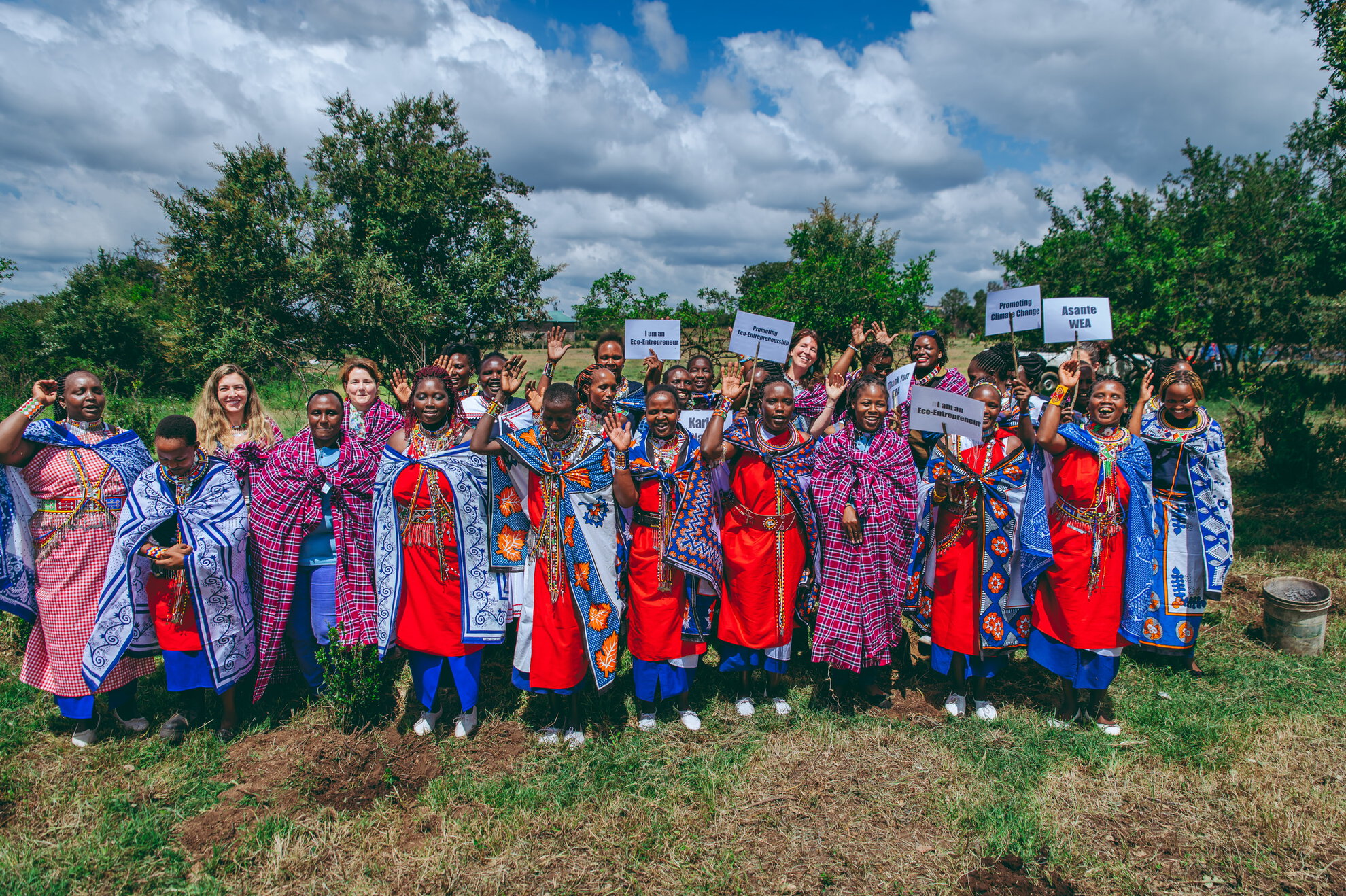Seeds of Change: A Glimpse into WEA’s Transformative Journey in Kenya
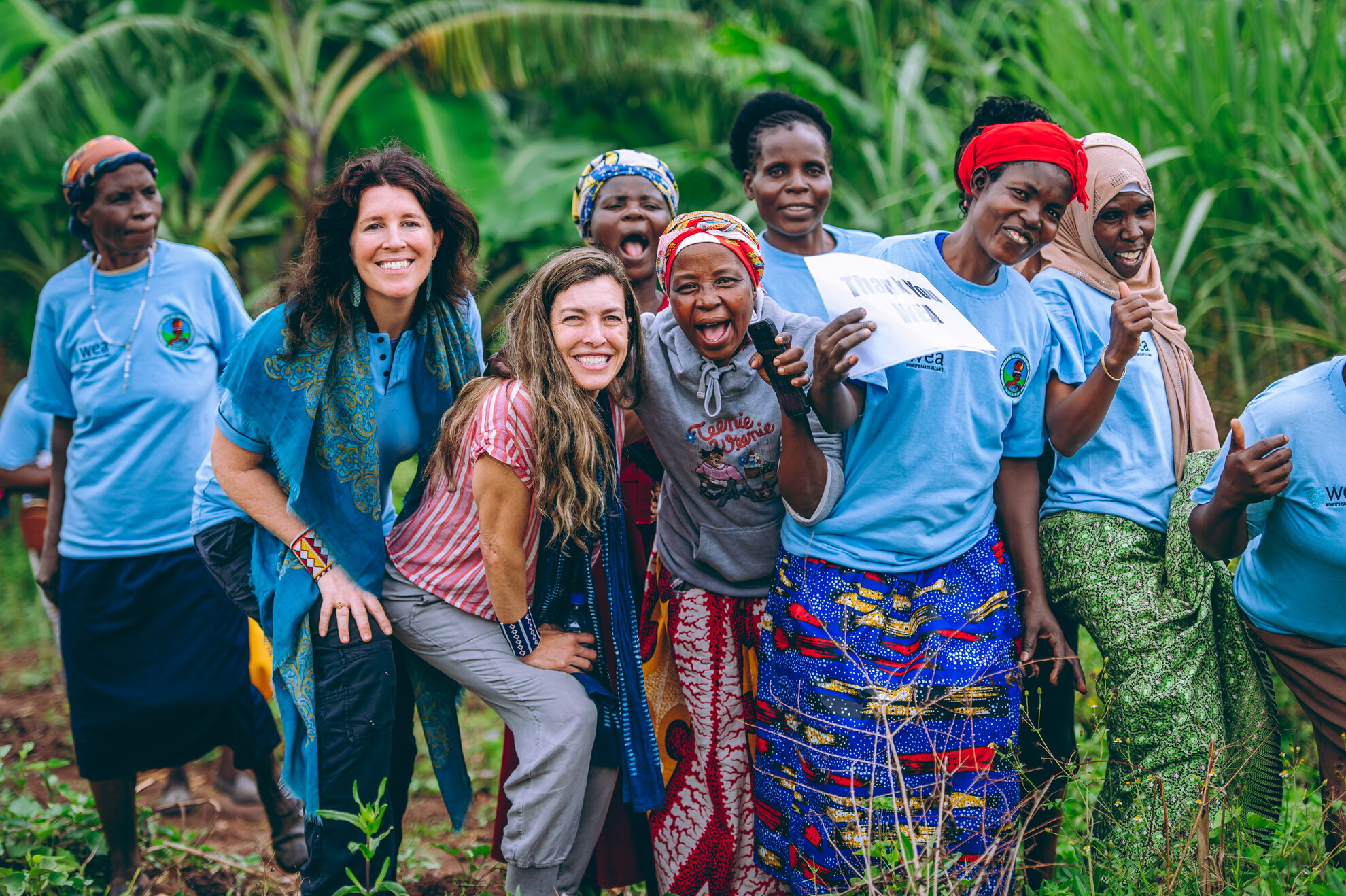
Returning from an incredible trip to Western Kenya, our hearts are full as we reflect on the transformative impact of WEA’s East Africa Leaders, dedicating their everyday lives to protecting their environment and creating a thriving future for future generations. In our 2023 Impact Report, we shared the staggering impact WEA’s East Africa programming created in Kenya and around the world. But, beyond the numbers, it was meeting WEA leaders — women who transform the climate challenges they face into opportunities to support their families and communities —which brought us to tears.
Kenya's stunning landscapes are shadowed by significant challenges, including deforestation, climate change, and social inequalities. Women play a crucial role in sustainable development, yet they face systemic barriers, and with climate change resulting in more frequent droughts, flooding, and a staggering 65% of Africa’s farmland now degraded, women bear the brunt.
In 2023 alone, alongside our partners in East Africa, WEA made remarkable strides in tackling these issues. In Kakamega, Kenya’s last tropical rainforest, WEA-trained women’s groups grew 123,000 trees. As Rose Wamalwa, WEA's East Africa Regional Director, says: “Our work is from the ground up. One seed, one tree, one woman at a time. One becomes 10, becomes 1,000, becomes 1 million.”
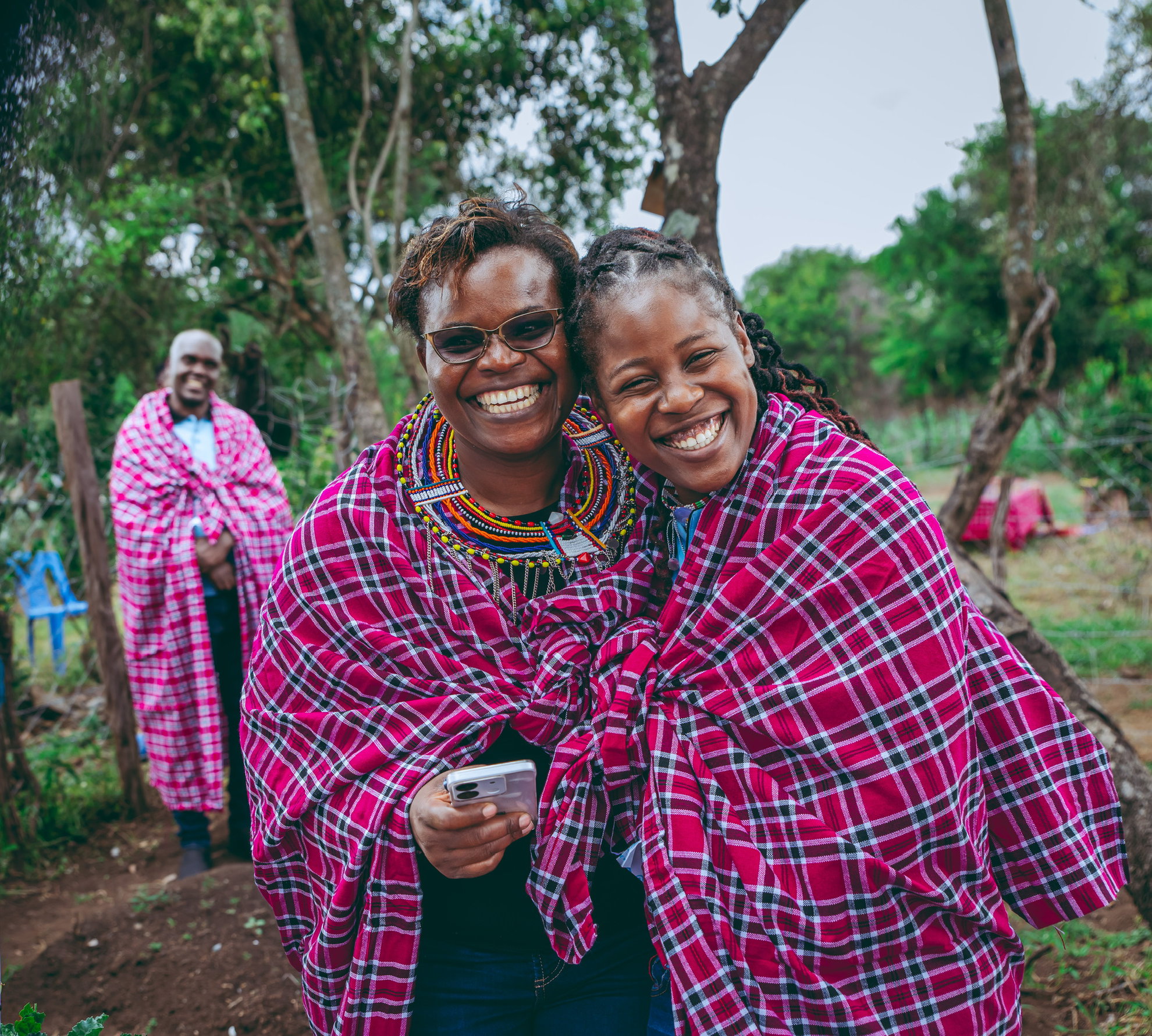
WEA's climate resilience programs in Kenya and throughout East Africa create employment opportunities and reduce poverty in communities impacted by climate change through the economic empowerment of women eco-entrepreneurs. Through seed grants and training on business management, technical skills, and marketing strategies, WEA leaders can scale grassroots, women-led eco-entrepreneurship solutions while restoring natural ecosystems and stimulating local economies.
Through WEA's Accelerator programs, Kenyan women leaders have launched and scaled climate resiliency initiatives including:
- Growing, distributing, and training communities to plant saplings for agroforestry, erosion control, and climate adaptation
- Growing climate-resilient seed and establishing community seed banks as an alternative to agrochemical seed systems
- Implementing WASH programs with communities
- Establishing women-led groups to identify and mitigate climate disasters
After a few days of visioning and strategizing with our East Africa Program Leads — Bukoba Women’s Empowerment Association in Tanzania, Conservation Heritage in Rwanda, Uganda Women’s Water Initiative, and Women in Water and Natural Resources Conservation in Kenya — about what’s next for our work in the region, we headed out to visit WEA Leaders who have been part of our recent Eco-Entrepreneurship Program. These visits took us to the semi-arid region of Narok, as well as the lush region of Kakamega — home to Kenya’s last remaining tropical rainforest.
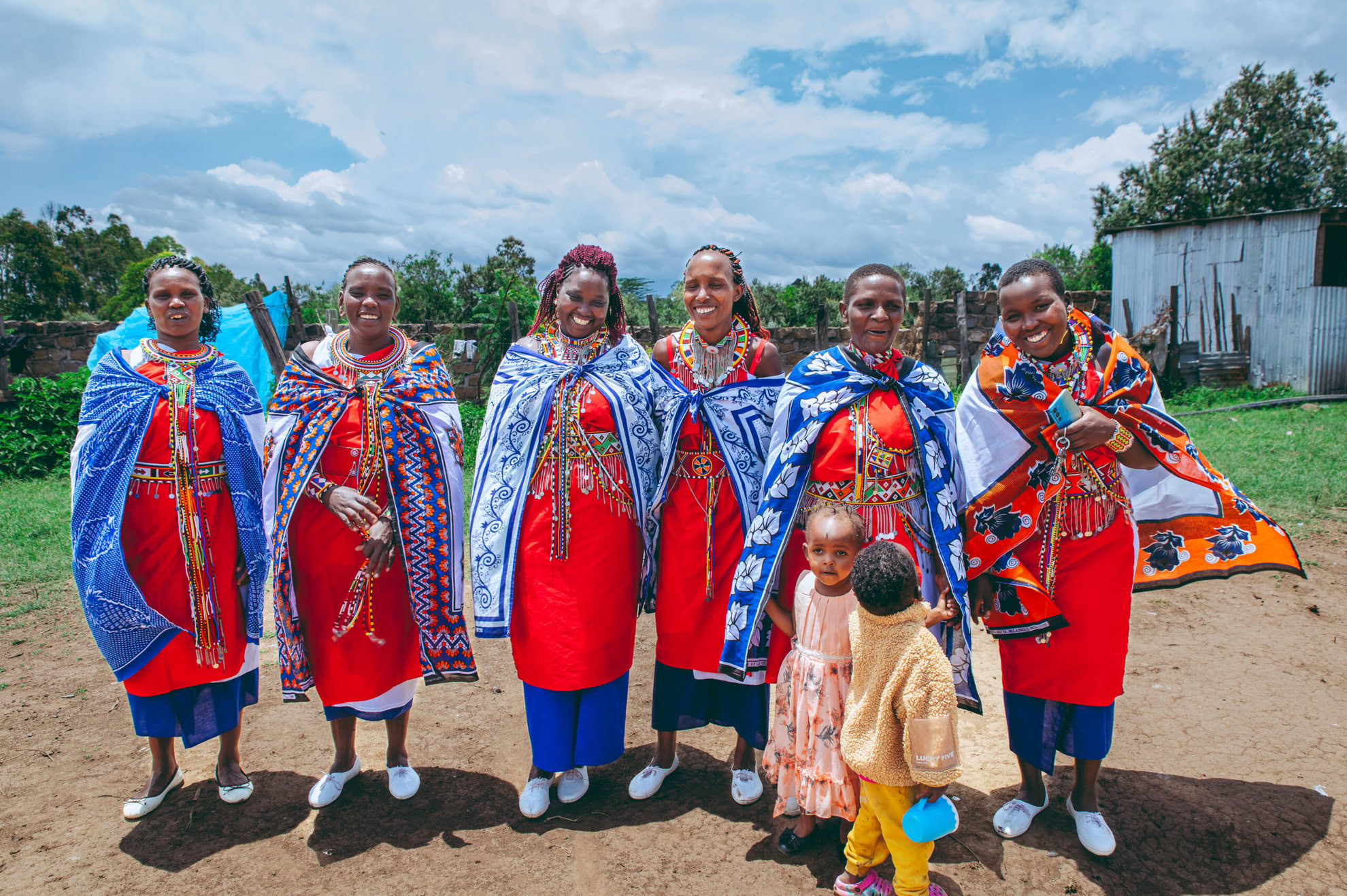
In Narok, we spent time with Maasai WEA Leaders who have devoted the last many years to transforming their community with tree nurseries, community gardens, clean cooking technology, soap-making, and more. It was moving to see how their leadership has reduced deforestation, improved financial and family well-being, garnered respect from male community members, and inspired younger generations who are watching their mothers and grandmothers take their place as leaders in their community.
We then visited the lush regions of Kakamega and Kitale. There was much to celebrate as we visited communities that have transformed in the last 5 years, since women leaders participated in WEA's Climate Accelerators. We witnessed the pride and joy of women who have reduced deforestation, increased household financial wellbeing, reduced gender-based violence, improved family health and wellbeing, and inspired more women with every turn. We visited thriving indigenous tree nurseries and forests, homes with energy-saving stoves, and nutrient-rich gardens. WEA Leaders shared their agricultural enterprises and explained with pride how they are earning income and supporting their children to attend college because of the savings they have grown as eco-entrepreneurs.
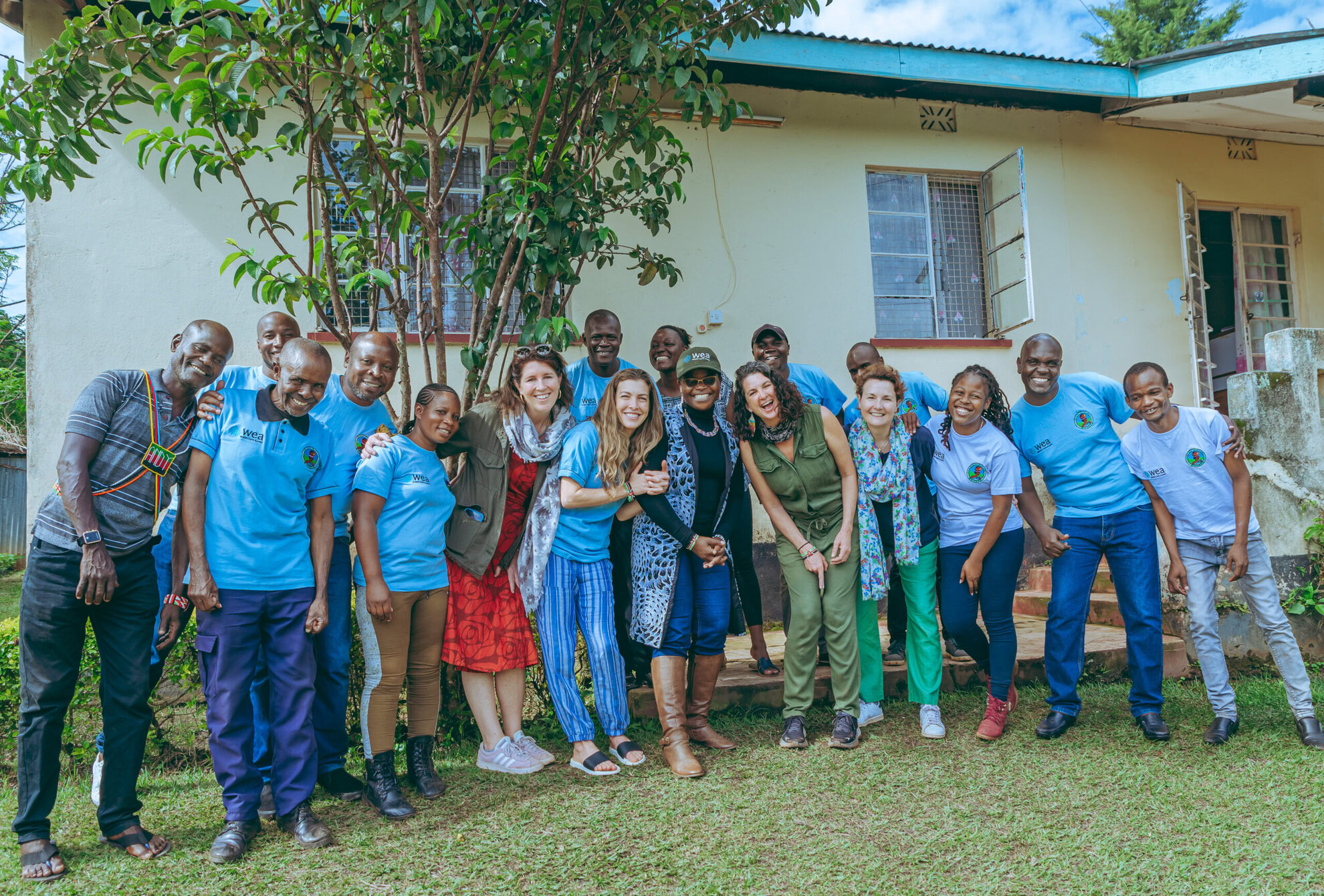
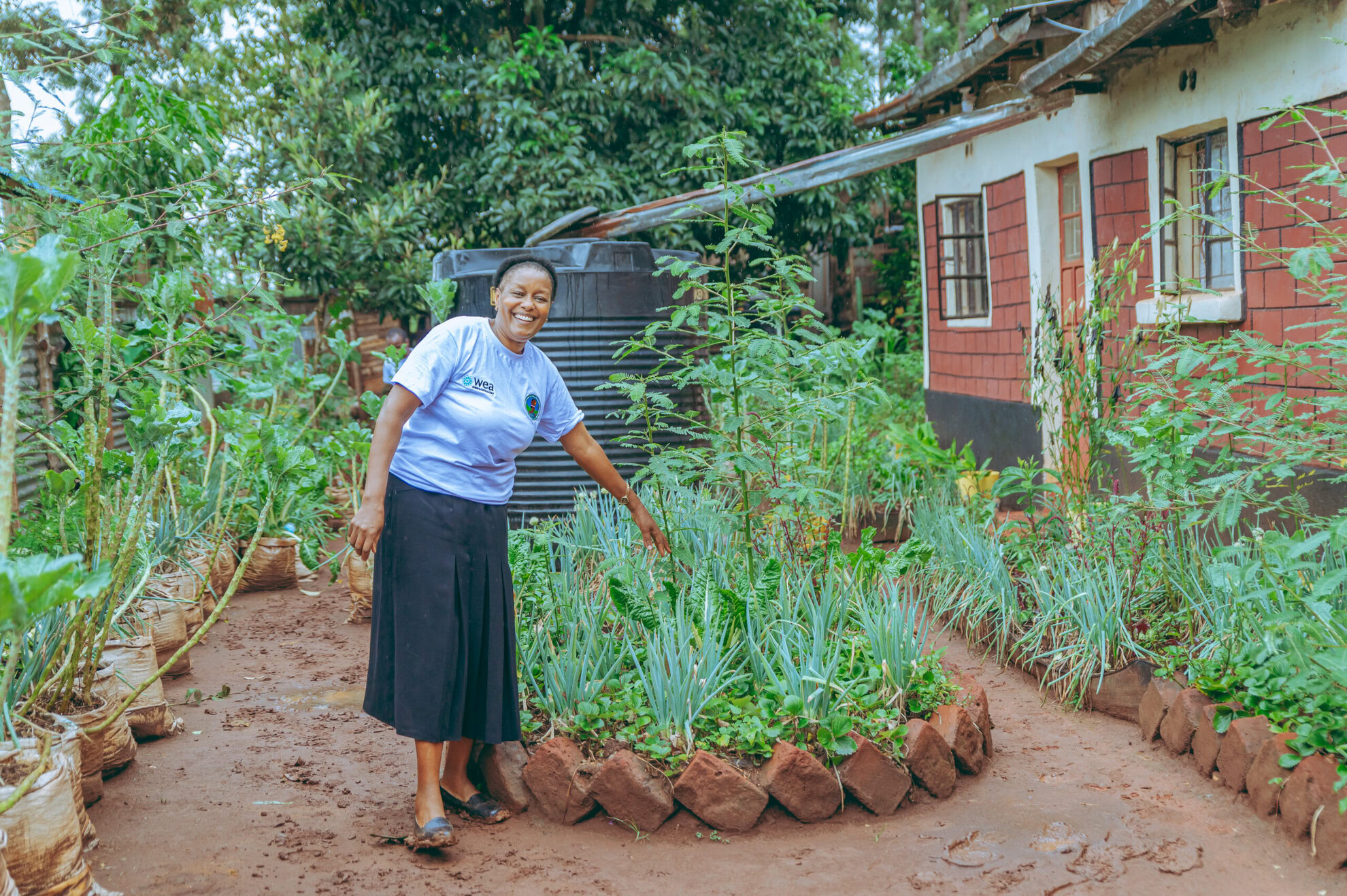
It is clear that with every step WEA Leaders take, they engage more women to ensure that others can also benefit. The result is that hundreds of women from these communities are active in climate change mitigation and adaptation. They have the respect of the entire community and have inspired the young people who are watching their mothers and grandmothers lead. There are no words to properly express the power of transformation that these women have ignited — but we could feel the sheer joy in our smiles, songs, marches and hugs.
We also visited WEA’s longstanding Women and Forest projects that are in Kakamega’s Tropical Rainforest Preserve. Amidst the decades-long fight against deforestation in this region, the success of these local women-led initiatives is remarkable. We walked among the indigenous trees nurtured by the women of these communities and celebrated their accomplishments in establishing tree nurseries and training others in forest management. Their efforts have not only revitalized the rainforest but also led to the Kenya Forest Service Department allocating additional land for their continued stewardship.
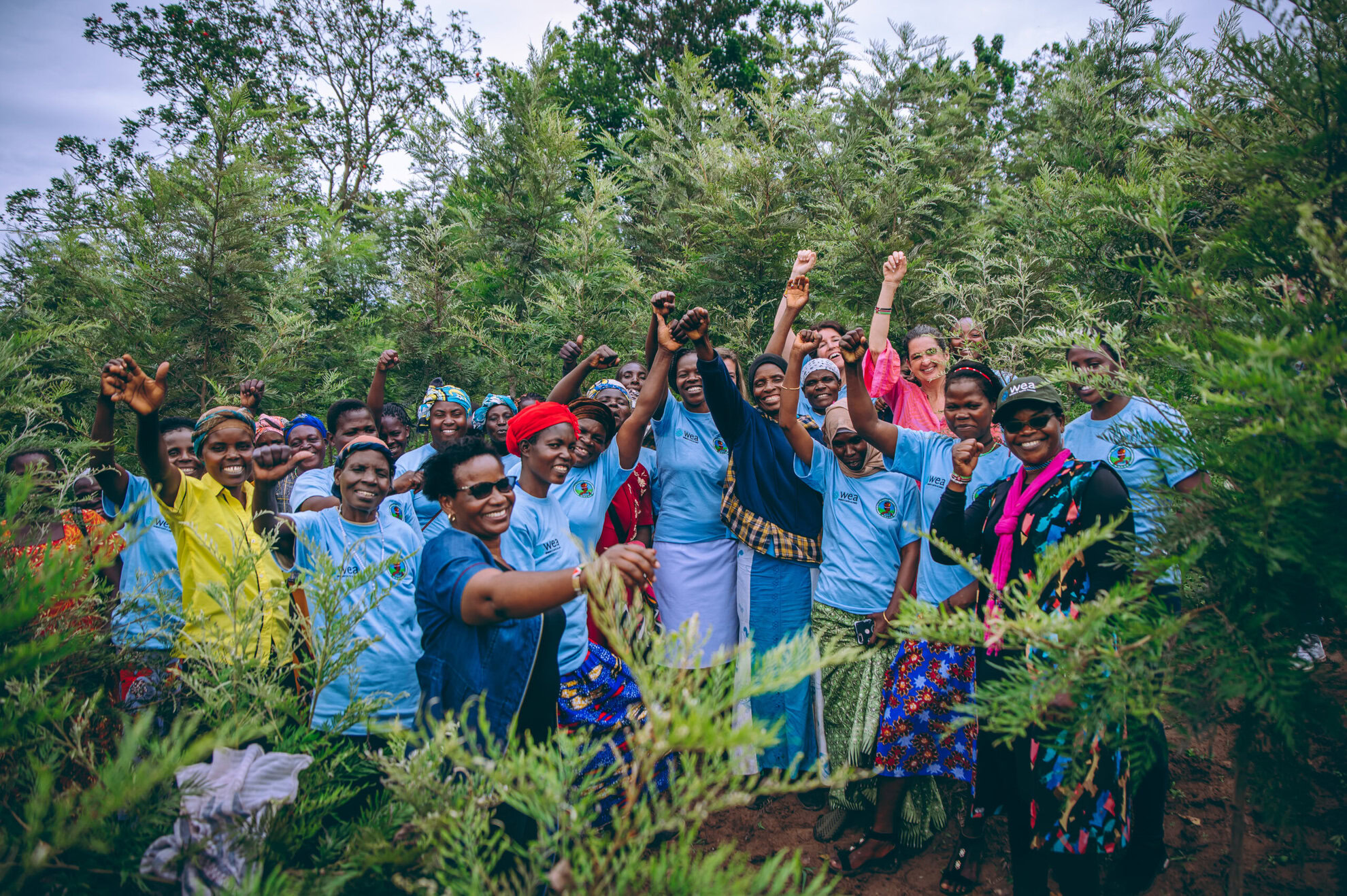
Every WEA Leader shared how she pulled in more women with her at every stage of her growth. With every training, grant, and resource she gained, she gathered others and taught them what she learned. This is when the numbers of women trained through WEA’s programs (thousands each year) start to compute. This is when the word “transformation” comes to life. This is why, wherever we went, there was a massive celebration of singing and dancing. This is when saying “When women thrive, the Earth thrives” comes to life.
At the end of each visit, we stood united, sharing our rallying cry in Kiswahili, “Wanawake wanapostawi, dunia hustawi” (when women thrive, the Earth thrives). From planting trees to launching eco-enterprises, WEA women are not just stopping environmental degradation; we are building new economies, new leadership and renewed hope.
